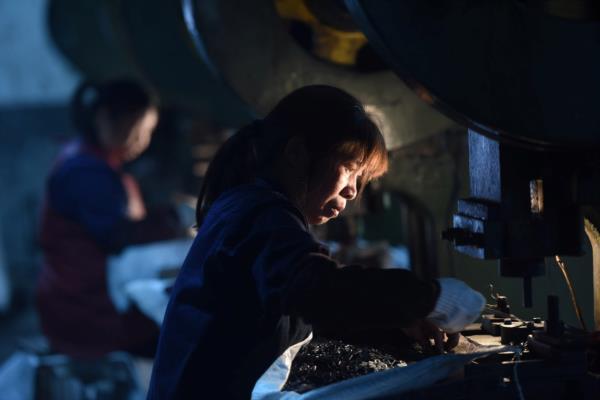
As we bid farewell to 2021 and welcome the new year with open arms, it seems that China's factory activity is still grappling with some challenges. According to a recent Reuters poll, China's December factory activity is expected to contract for the third consecutive month.
Now, before we jump into the details, let's take a moment to appreciate China's remarkable economic growth over the years. From being an agrarian society to becoming the world's second-largest economy, China has been a force to be reckoned with. However, every economic journey has its ups and downs, and it seems that Chinese manufacturers are currently facing a few bumps in the road.
The poll, which surveyed a group of economists, revealed that China's factory Purchasing Managers' Index (PMI) is likely to contract in December. PMI serves as a crucial indicator of economic health – a reading above 50 indicates expansion, while a reading below 50 suggests contraction. As per the poll, China's PMI is expected to fall to 49.7 in December, down from 50.1 in the previous month.
Now, before we start sounding the alarm bells, it's important to understand the context behind this contraction. China's factory activity has been facing some headwinds, including supply chain disruptions, power shortages, and ongoing efforts to curb pollution levels. These factors have undoubtedly put some strain on the manufacturing sector, leading to a slowdown in activity.
However, it's worth noting that China is not alone in facing these challenges. Many countries around the world are grappling with similar issues, as the global economy continues to navigate the aftermath of the pandemic. From semiconductor shortages to supply chain bottlenecks, the manufacturing sector has become a delicate balancing act for many nations.
As we inch towards a new year, it's crucial to maintain optimism and recognize that these temporary setbacks present opportunities for growth and innovation. China has a proven track record of adapting and thriving in the face of adversity. Its resilience and ability to recalibrate its economic policies have often surprised skeptics and led to impressive rebounds.
Moreover, it's essential to remember that economic fluctuations are part of the natural cycle. Just as night gives way to day, periods of contraction give way to expansion. It's all part of the intricate dance that economies perform, constantly adjusting and evolving to meet the changing demands of the world.
So, while it may seem concerning that China's factory activity is expected to contract for the third month in a row, let's not lose sight of the bigger picture. China's economic landscape is rich with potential, and its ability to rebound from setbacks has been proven time and time again.
As the world watches with anticipation, let's remain hopeful that China will weather this storm and emerge stronger than ever. After all, in the grand tapestry of economic fluctuations, the brightest moments often follow the darkest hours.







